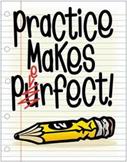
Заглавная страница Избранные статьи Случайная статья Познавательные статьи Новые добавления Обратная связь FAQ Написать работу КАТЕГОРИИ: ТОП 10 на сайте Приготовление дезинфицирующих растворов различной концентрацииТехника нижней прямой подачи мяча. Франко-прусская война (причины и последствия) Организация работы процедурного кабинета Смысловое и механическое запоминание, их место и роль в усвоении знаний Коммуникативные барьеры и пути их преодоления Обработка изделий медицинского назначения многократного применения Образцы текста публицистического стиля Четыре типа изменения баланса Задачи с ответами для Всероссийской олимпиады по праву 
Мы поможем в написании ваших работ! ЗНАЕТЕ ЛИ ВЫ?
Влияние общества на человека
Приготовление дезинфицирующих растворов различной концентрации Практические работы по географии для 6 класса Организация работы процедурного кабинета Изменения в неживой природе осенью Уборка процедурного кабинета Сольфеджио. Все правила по сольфеджио Балочные системы. Определение реакций опор и моментов защемления |
Match the expressions on the left with the correct meaning on the right.Содержание книги
Поиск на нашем сайте
9. Employers use job applications to gather information about your qualifications, and to compare you to other applicants. Remember that you only get one chance to make a first impression so it’s crucial to convey a good one. When they read your application, the company is ‘interviewing’ you, forming impressions and making decisions about whether you fit in to their business. PUse the correct colour ink (usually black) PUse your own handwriting (unless specified otherwise) P Be honest P Complete the form fully
Lesson 56.
DISCUSSION Discuss the answers to these questions. 1. Who do you think is more likely to lie?
2. Do you think most people … — usually tell the truth? — lie when it’s convenient? — lie only if they think they have to? — usually lie only about unimportant things? — only lie about important things?
Read the article. RESUMES: FACT OR FICTION? Exaggeration Is Common, But Risky People are sometimes “creative” when they are writing their resumes. That doesn’t surprise Edward C. Andler. “Cheating on resumes is very common,” says Andler. He is a resume detective and the author of The Complete Reference Checking Handbook. “Many people are getting away with it, so more people are trying to do it.” Andler’s surveys show that about one-third of all resume writers exaggerate their background and accomplishments. Approximately 10 per cent of job seekers “seriously misrepresent” their work histories. In some fields, such as sales, the numbers are even higher. Typical lies include fictional degrees, false job titles, exaggerated responsibilities, and the changing of dates of previous employment to hide times of unemployment. Some resume lies, such as fake degrees, are easy to discover. Other lies, particularly exaggerations, are harder to check. “Most companies will only give you dates of employment, and that’s it, no details,” Andler says. However, Andler uses other techniques to discover lies on resumes. For example, when he checks references, he asks the name of another work colleague. A call to that person helps him find untruths. “A person who gives a reference is supposed to say good things. They are prepared and they don’t want to be negative. However, when you call another colleague, you often get more truthful answers.” Still, many applicants get away with their lies. And that is why so many people continue to do it. “Our message to people who cheat is just don’t do it,” says Andler. “We may not catch you now, but sooner or later, somebody will.” 2. Write true (T) or false (F). Correct the statements that are false. ___ 1. People are often untruthful on their resumes.
___ 3. A lie is more difficult to check than an exaggeration. ___ 4. People who write references are usually truthful. ___ 5. It can be dangerous to lie on your resume.
|
|||||||||||||||||||||||||||||||||||||||||||||||||
|
Последнее изменение этой страницы: 2016-04-08; просмотров: 890; Нарушение авторского права страницы; Мы поможем в написании вашей работы! infopedia.su Все материалы представленные на сайте исключительно с целью ознакомления читателями и не преследуют коммерческих целей или нарушение авторских прав. Обратная связь - 3.138.134.247 (0.009 с.) |

 PRACTICE
PRACTICE


 a politician
a politician
 a journalist
a journalist
 a religious leader
a religious leader
 a salesperson
a salesperson
 the president of a company
the president of a company
 2. READING
2. READING READING COMPREHENSION
READING COMPREHENSION ___ 2. People never lie about college degrees.
___ 2. People never lie about college degrees.


